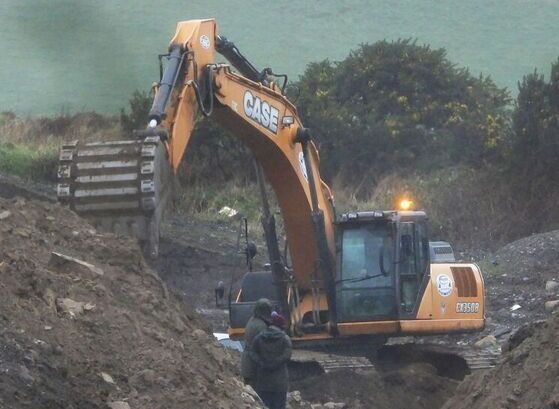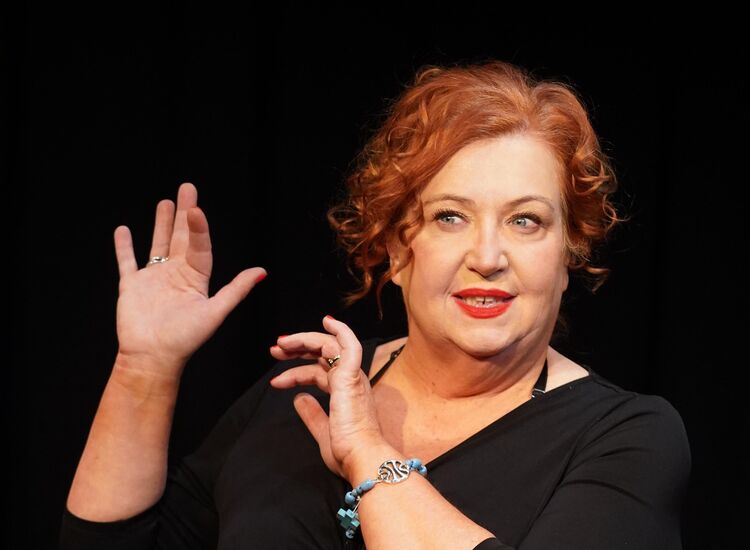[caption id="attachment_66941" align="aligncenter" width="600" caption="John Bowers."]
With American workers under attack today, our challenge is as great as it has ever been.
Growing up in a "dockworkers family," I witnessed first hand the struggles and challenges that union longshoremen in our country had to endure. They had to fight powerful shipping executives for dignity and respect, and the mob bosses who wanted to control the union in the Port of Boston.
I personally witnessed this as a youth. I saw the courage of my father, uncles and so many other longshoremen who stood up to the ruthless enemies of decent, hard working men and women.
These longshoremen would become my role models and an inspiration to me in my political career. When I was presented my father's union membership card, it was a proud day for me.
Like my dad, my faith and work ethic formed my values in life. And later, when International Longshoremen's Association president, the late Johnny Bowers, presented me with a lifetime union membership card, it meant more than you can imagine.
You hear a lot of talk today about the "new economy" and how technology is changing our lives for the better. I'm hear to tell you that it's more important to remember the old values of the dignity of men and women, than any of the new-fangled gadgets being developed today.
I talk frequently at colleges throughout the country and when I'm speaking in front of the students, I often see them tapping on their laptops and looking up information on the Internet. So I like to tell these students the story of what it was like when I was in college and I had to write a 20-page paper - by hand - about a papal encyclical written in 1891.
The encyclical was Rerum Novarum, which was issued by Pope Leo XIII (my middle name is Leo, after him). And it describes the rights and the dignity which are due to working people.
This economics course was taught by the Reverend Charles Quirk, O.P. and in writing the paper, I didn't have to resort to a lot of research. I was able to use my own experience, and that of my father.
My father was a union dock worker in Boston and for a while, so was I.
One hot day, we were unloading a ship from Argentina. The ship was filled with wet and smelly animal skins. Rats, spiders and bugs ran throughout the ship. We didn't like the look of it and it was brought it to the attention of the captain of the ship.
But he said he couldn't do anything about it. Our Longshoreman's union representative didn't take no for an answer. He threatened to order the men off the ship if the cargo wasn't cleaned up first. He also demanded extra pay for unloading a hazardous cargo. Again, the captain refused. This time he threatened to tell the shipping company to replace us with non-union workers.
The men needed the work and they didn't want to walk off the job. Finally, the president of the Boston Shipping Association arrived. But all he could do was assure our ILA union representative that the issue would be brought up at the next contract.
"In the meantime," he said, "go to work, or you'll be removed from the ship and you won't ever work for this company again."
Then, several "goons" who traveled on the big freight ship started pushing some of the dock workers around. Things looked like they were getting out of control. The foreign shipping workers pulled out clubs. Some of them even had guns. The ILA delegate and the BSA representative agreed to take a 20 minute break and try and settle the dispute. It didn't look promising.
At that point, a longshoreman had the idea to call the port chaplain, Fr. Powers, from Gate of Heaven Church in South Boston. The priest showed up within minutes and climbed up on the ship and talked to both sides. He brought them together for a short and heated meeting.
Soon enough, the union delegate emerged from the meeting and told the boys to go back to work.
"We got 35 cents extra an hour for hazardous duty," he said.
This increase in pay was a big boost in the hourly rate. The ship was unloaded. Violence was averted. And I learned a valuable lesson.
The Port of Boston, ship owners, and the International Longshoremen were able to work it through due to the intervention of one chaplain. He was able to put into practice the values that were taught by the Catholic Church - that if the free market economy in America is going to work, it has to reward hard work and treat workers with dignity and respect.
That was a lesson I didn't learn from in books, or on the Internet. It was obtained from my own personal experience. It was an experience that shows why unions are essential in protecting and promoting economic justice and dignity for millions of American families. And it also helped me get an "A" on my college paper.
The students I tell this story to often comment that they enjoyed hearing it. They even stop typing on their laptops or cell phones when I tell it.
Somebody else who I told the story to also thought it was a good story - Pope John Paul II. When I told him the story, I said it made me think of those workers in the Polish shipyard in Gdansk during the communist imposed marshal law, which I witnessed while he actively supported the striking union movement.
The pope's courage and conviction helped lead to the fall of Communism in Poland and throughout Eastern Europe. I also told him when I was a little boy, every night after supper, my family would sit around the kitchen table and pray the rosary. I told him that we prayed for the conversion of Russia and the fall of communism.
So what did the man who played such an important role in the collapse of communism say to me next: "Mr. Ambassador, your families prayers were answered."
I think the lesson here is that our actions must be informed by our faith and our values. And that when it is - by individual workers like yourself, and by world leaders like Karol Wojtyla, Ronald Reagan, or by union leaders like International Longshoremen Association national president Teddy Gleason, who led a boycott of Soviet ships of American ports in protest of the Soviet invasion of Afghanistan, or by Lech Walesa, leader of the Polish labor union movement, we can also do great things, whether it's bringing an end to communism, as these four leaders help bring about, or getting the American economy moving again.
Here's my message to President Obama and Congress: Give the American labor movement a seat at the table. And allow the Catholic church and other people with moral credibility to be as a partner in America's future once again. You might be surprised how effective they can be.
Yes, the present financial challenge for America is enormous. But as history has proven, political leaders can't solve a crisis; military or economic, alone. They need the support of dedicated people willing to stand up and be counted. We have such people in America. Call on them, they'll answer the call. They do in war time and they will be there in time of an economic crisis.
I would love to tell you Mr. president and members of Congress, how a pope, a president and two union leaders (one an electrician from a shipyard in Gdansk and the other a dockworker from the streets of New York City), stood up to the world's most powerful and ruthless enemy, communism, and won.
I knew and often spoke to Wojtyla, Reagan, Walesa and Gleason. I saw first hand how these four men, who grew up under the most difficult of circumstances, the Great Depression, wars, and tyranny, were able to inspire the world because they understood the God given dignity and value of every woman and man.
I'm convinced that our president, Congress, and the labor movement, are capable of this same greatness.
Will history record that the financial challenge that we face today was America's finest hour?
Americans are a hopeful people. But opportunities for greatness don't come around often. This is our "rendezvous with destiny."
The question is: Are we willing to get involved and do what's best for the common good?
This is an extract of the address by Ray Flynn to the delegates at the recent International Longshoremen's Association- AFL-CIO Convention in Hollywood, Florida. It was entitled: "America's policies must be rooted in the dignity of every person." "








